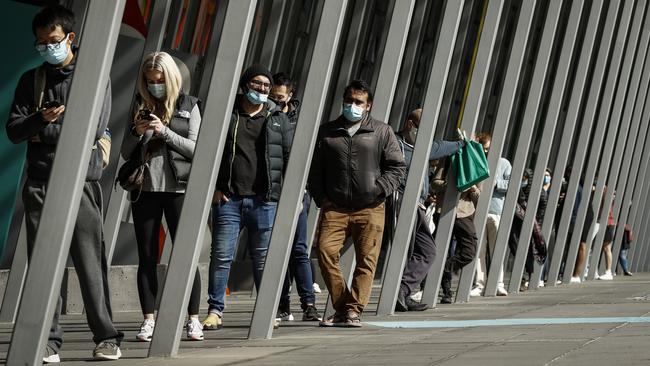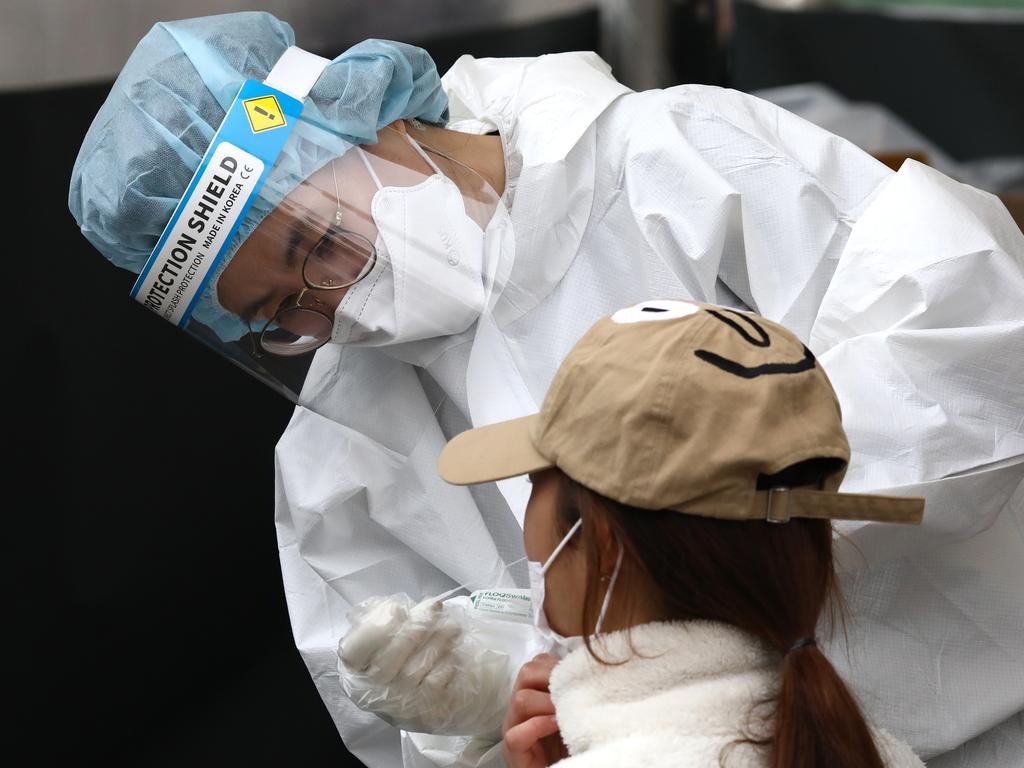
However, Cater’s questioning of the Covid vaccines – on the grounds that “they have failed to stop transmission, whatever else they might do” – is deeply troubling. It is, to begin with, hard to square Cater’s claim with the comprehensive reviews of the evidence that have recently been undertaken by the Therapeutic Goods Administration in this country, the Centres for Disease Control and Prevention in the US, the UK Health Security Agency and the European Centre for Disease Prevention and Control.
Assessing both the clinical trials and the population studies, all of those bodies conclude that vaccination at least halves the risk of infection, lowering the number of people who have Covid. And since only those who actually have the virus can transmit it, vaccination diminishes the extent of transmission, regardless of how little impact it has on the disease’s inherent transmissibility.
But even putting that aside, to focus on transmissibility misses the point. The ultimate goal of Covid policy is not to “stop” transmission. It is to both reduce the fatalities from Covid and prevent hospitals from being overrun, as that would magnify the human cost by throwing the health system into crisis. As a result, the relevant question is not whether vaccination reduces the disease’s transmissibility; it is whether it lowers the risk of experiencing the life-threatening symptoms that require hospitalisation and that stand a high chance of leading to death.
Here, too, the evidence is overwhelming: vaccination lowers the incidence of severe Covid by 75 to 97 per cent, and on average cuts the risk that an episode of Covid will prove fatal by up to 90 per cent, helping to protect the hospital system while dramatically diminishing the suffering Covid inflicts. To dismiss that effect is scarcely sensible.
An illustrative calculation shows why. Assume that vaccination reduces the risk of requiring treatment in intensive care by only 70 per cent, which is very conservative relative to current estimates. Then, were the Australian population entirely unvaccinated, there would now be 4200 patients with Covid seeking admissions to intensive care units, instead of the 123 who are currently in intensive care.
Given that there are 2300 beds in ICUs, the hospitals would be swamped, making a spike in the death rate inevitable – and creating enormous pressures for further lockdowns. It is largely thanks to the vaccines’ effectiveness in preventing life-threatening illness and to our high vaccination rates that we have been able to absorb increasingly contagious variants of the Covid virus without incurring the far-reaching damage such a scenario would cause.
Overall, Australia’s performance in handling the health impacts of Covid has therefore hardly been as disastrous as Cater suggests. It is certainly true that the number of cases has risen and is now high by international standards, although that partly reflects seasonal factors. But it is not the incidence of Covid that is determinative; what matters is the pandemic’s human toll. And on that score the data refutes any suggestion that our experience is similar to that of Italy and Ireland, much less the contention that it is worse than those of Sweden, the US and Spain.
The facts speak for themselves: measured over the course of the pandemic, Australia’s population fatality rate (Covid deaths per 1000 population) is barely a quarter of that in Sweden and Ireland, a sixth of that in Italy, the UK and Spain, and a 10th of that in the US.
Nor does the recent increase in fatalities alter those rankings: taking the three worst months of pandemic-related deaths in each country, our peak fatality rate remains less than a third that of the comparators Cater points to.
None of that means the response was flawless. The effectiveness of the lockdowns will be debated for decades to come; but it is hard to deny that their implementation was heavy-handed, riddled with arbitrariness and marred by an appalling lack of compassion.
That they imposed a massive fiscal cost is also undeniable – though once people were being prevented from earning a living, it was both equitable and efficient for governments to cushion, to the greatest extent possible, the otherwise uninsurable losses they were inflicting. It may well be that the compensation arrangements could have been better managed; but it is one thing to criticise policy design and quite another to contend that compensation – which on any plausible estimate would have precipitated a steep and enduring rise in public debt – should not have been paid.
Yet the cripplingly high cost and contentious effectiveness of lockdowns in no way undermine the case for vaccination; rather, they make it all the more compelling, as universal vaccination remains our best chance of living with a virus whose virulence remains unabated.
Of course, it may be that vaccination can have undesirable side effects: most medicines do. But it seems curious to claim, as Cater does, that information about those side effects is being suppressed. In reality, there are few countries, if any, where vaccine hesitancy was more actively fanned by health officials and by large parts of the media, with the relentless criticism of the Astra-Zeneca vaccine drastically slowing the vaccination effort.
Moreover, few advanced economies took as long, or demanded such thorough tests, before approving vaccines. Nor are there many parallels internationally for the extreme caution the Australian Technical Advisory Group on Immunisation has consistently displayed in its recommendations. If a vast conspiracy has been afoot, it has scarcely been in favour of vaccination.
Looking to the future, it would be rash to assume that Covid will become less dangerous: some viruses do, but many, such as polio and HIV-AIDS, do not, even when they become endemic (that is, when their reproduction rate, or speed of contagion, falls below one). Yet complacency has set in, along with Covid fatigue: social distancing has virtually disappeared, while the take-up of boosters is disappointing, threatening our levels of immunity. If policy does not promptly address those trends, the risks will only continue to grow, as will the likelihood of extreme responses.
Since time immemorial, pandemics have served to wrench apart the social and economic fabric, unleashing the authoritarianism and unbridled arrogance of the doomsayers on the one side, and the demagogy and cheap populism of the perpetual nay-sayers on the other.
As the debate descends into that vortex of unreason, it becomes ever more difficult, but ever more important, to hew to the facts, which alone can bring stability to an unsteady world. With new waves of Covid already wreaking havoc, that may well be the most important lesson of all.







It is crucial to learn the lessons of the Covid-19 pandemic, as Nick Cater, writing on these pages on Monday, rightly argues. And the fact Covid shows no signs of going away merely makes it more vital.